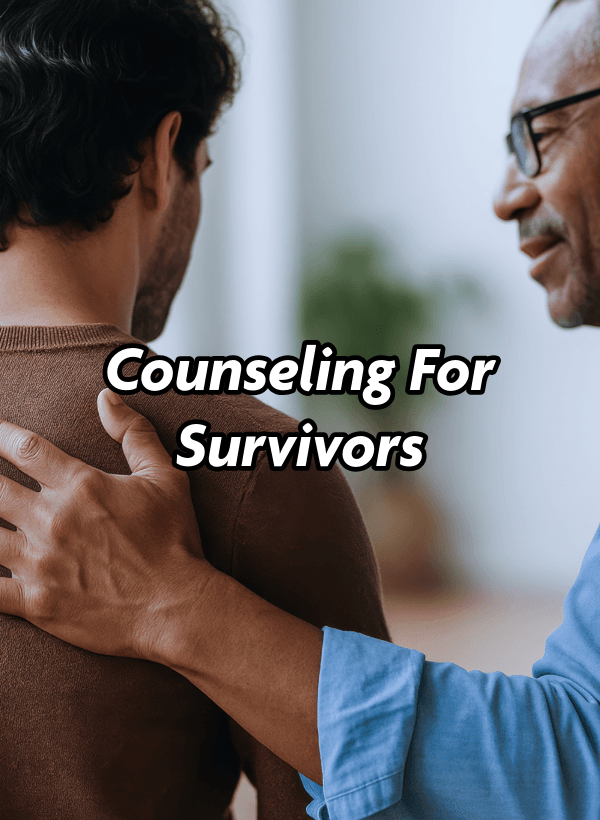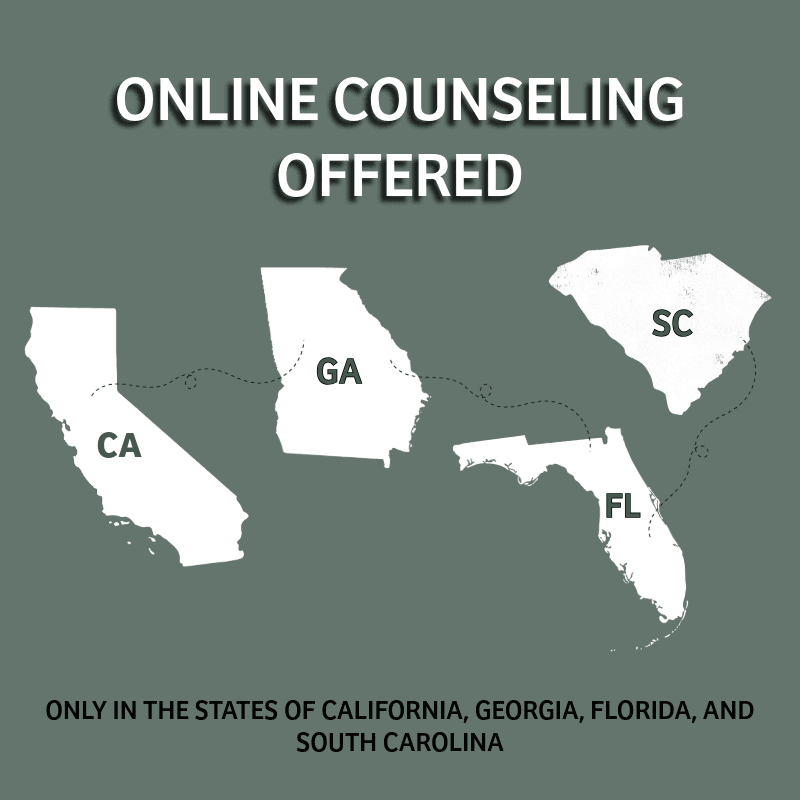Online & In-Person Trauma Therapy In Alpharetta, Ga.
We offer professional trauma therapy services at our Alpharetta office—and also online through secure telehealth—for individuals seeking support and healing after difficult or distressing experiences.
Counselors That Offer Trauma Counseling Services
Caroline Gregory, MS
In Person Counseling
Specialties
Individual Therapy, EMDR- Trauma, Athletes
Individual Therapy, EMDR- Trauma, Athletes
Jacob Newman, LMSW
In Person Counseling
Specialties
Teens, Young Adults, Adults, Sexual Assault & Abuse, Anxiety, Depression
Teens, Young Adults, Adults, Sexual Assault & Abuse, Anxiety, Depression
Christi Cawley, LPC
Online Counseling in Ga
SpecialtiesEMDR for PTSD/Trauma, LGBTQIA+ Certified Therapist, Anxiety
Lindsey Wheeler, LPC, CPCS
Online Counseling in GA, FL, & CA
Specialties
Online Counseling, Couples, Adults
Online Counseling, Couples, Adults
Specialty Trauma Therapy Services
Click on the Trauma Therapy Services Below to Learn More
Recovering from Trauma: Start Here
1. What is Trauma Therapy and How Does it Help?
Trauma therapy is a specialized form of counseling designed to support individuals who have experienced distressing or traumatic events. It helps process painful memories, reduce symptoms like anxiety and PTSD, and promote emotional healing and resilience.
2. How Long Does Trauma Therapy Usually Take?
The duration of trauma therapy varies depending on the individual and the severity of their experiences. Some clients find relief in a few months, while others may benefit from longer-term therapy. Your therapist will tailor the treatment plan to your unique needs.
3. What Should I Expect During Trauma Therapy Sessions?
During trauma therapy, you can expect a safe, supportive environment where your therapist will guide you through understanding and processing your experiences. Sessions may include talking about your trauma, learning coping strategies, and using specialized techniques like EMDR or mindfulness to help reduce symptoms and build resilience.
4. Is EMDR Therapy Effective For Treating Trauma?
Yes, EMDR is a highly effective, evidence-based therapy for trauma recovery. It helps reprocess traumatic memories so they no longer cause intense emotional distress, making it easier to move forward in life. Many trauma therapists are trained in EMDR to provide this specialized support.
5. Can Trauma Therapy Be Done Online?
Absolutely. Many trauma therapists offer secure telehealth sessions, allowing clients to receive trauma therapy from the comfort and privacy of their own homes. Online trauma therapy is effective and convenient, making mental health support more accessible.
What Is A Trauma?
MOST DO NOT REALIZE THAT THEY HAVE EXPERIENCED A TRAUMA
Many people associate trauma with things like war, natural disasters, and rape. These are examples of traumatic events that can occur; however, trauma encompasses so much more. Trauma is any event or re-occurring event that we are powerless over and causes emotional or physical pain. How one perceives the event and the level of pain caused can determine if someone will have PTSD symptoms. This can look like a car accident, a neglectful or abusive upbringing, or even harmful words from an important person in our lives. Due to this stigma of trauma needing to be a catastrophic event, many people fail to see the after effects from trauma until it has had a major impact on their life.
Are Trauma Symptoms Impacting Me?
Trauma changes how the brain perceives your environment. It creates a state of hyperviligence - scanning the environment for something to go wrong. This can be anything from your children getting hurt or to rejection in a relationship. This hyperviligence takes a lot of energy and your attention. Therefore, it results in feeling exhausted, difficulty paying attention, forgetfulness, and increased irritability. Symptoms of untreated trauma may be anxious tendencies (sometimes with seemingly no trigger), depressed mood, thoughts of death and dying, or anxiety around losing control. Often times, these symptoms can impede on important relationships and can alter your capacity to be present with your significant other and children.
Trauma's Impact On Relationships
In intimate relationships (partner and close family), it can create one of two responses: A pursuit of validation that the relationship is okay; or a withdrawal from anything emotionally overwhelming. The impact may not be large in the beginning, but over time it will cause a pattern or cycle of fights without resolution which can be a barrier to connection, ultimately validating your fears.
TRAUMA'S IMPACT ON PARENTING YOUR CHILD
When parenting children, trauma can impact you in many ways. Two common ways are: First is the same push/pull away described above from your children. Either putting your emotional needs on your child (they are driving me crazy on purpose), or pulling away from their emotional needs (I just can’t handle them). Secondly, it can become difficult when the child is the age you were when the trauma occurred. For example: if your father passed away when you were ten, and your oldest daughter turns ten, and you suddenly find it difficult to focus, you have nightmares, sadness without cause, difficulty being close to your daughter or other family, etc. Either way, your ability to be present with your child in certain situations is impacted.
Discipline is also impacted. Managing children who are acting out is hard enough, but if anything about their behavior is triggering, you can become emotional and unable to redirect their behavior. Your emotional reaction to the trigger decreases your parental effectiveness and can lead to feeling defeated.
There Is Hope
Trauma is very treatable, and you do not have to be a slave to your triggers. Our counselors at Johns Creek and Alpharetta Counseling will work with you to not only cope with these difficult symptoms, they can help you fully process and move past the trauma to take your life back! The past cannot be changed, however one can find peace and resolution, so that the future is not dictated by the past. Give us a call to get started!



















